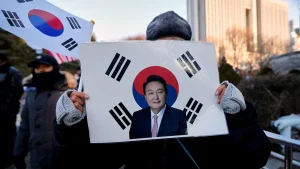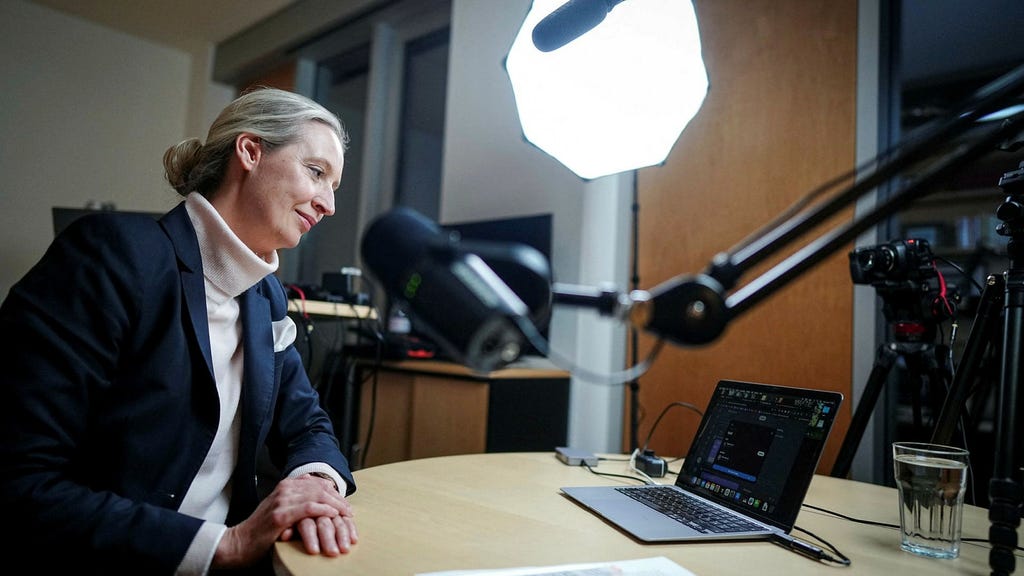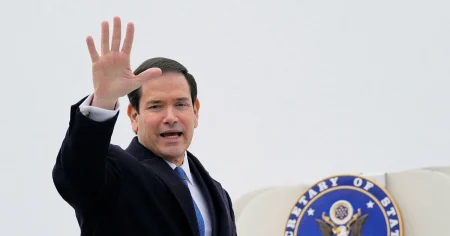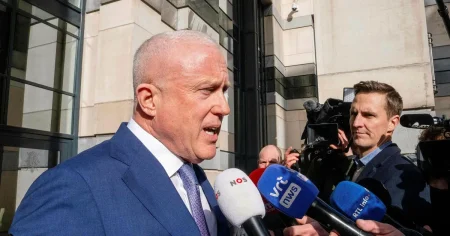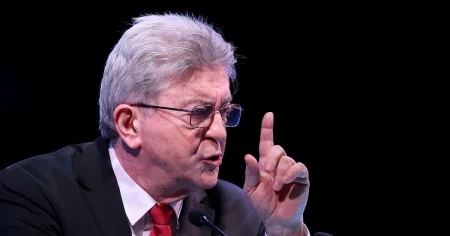The spectacle unfolded as a carefully orchestrated display of mutual admiration between Elon Musk and Alice Weidel, co-chair of the far-right Alternative für Deutschland (AfD) party. Laughter punctuated their conversation, often directed at the perceived inadequacies of the German government, which they derided as ”ridiculous” and ”stupid” for its decision to shut down nuclear power plants amidst the energy crisis triggered by the war in Ukraine. Weidel, whose party was gaining traction in pre-election polls, framed the decision as an act of national self-sabotage, while Musk chimed in with feigned incredulity, fueling their shared amusement. This performance of camaraderie set the stage for a broader critique of German policies, ranging from bureaucratic hurdles to educational curricula.
Musk, despite owning a major car factory near Berlin, lamented the cumbersome 25,000-page permit process, highlighting Germany’s perceived over-regulation. The conversation then segued into familiar right-wing talking points, including criticisms of German tax policies, the inclusion of gender studies in education, and the country’s approach to immigration. The seemingly casual exchange quickly revealed its true purpose: an overt endorsement of the AfD by Musk. Drawing a parallel with Donald Trump’s rise to power, he urged dissatisfied German voters to embrace the AfD, echoing the party’s own slogan that only they could save Germany. This endorsement was amplified on Musk’s own social media platform, X (formerly Twitter), solidifying his alignment with the far-right party.
The event was less a debate and more a calculated effort by Musk to lend his considerable influence to the AfD’s election campaign. He repeatedly referred to Weidel as the ”voice of reason,” a phrase strategically employed by the AfD itself. Weidel, in return, praised Musk’s wealth and advocated for a reduction in state power and lower taxes, echoing the AfD’s core economic platform. She expressed a desire for ”strong leaders,” implicitly contrasting them with the current German leadership, whom she deemed ”stupid” and ”weak.” This exchange, peppered with disparaging remarks about political opponents, ironically occurred within a context where both Musk and Weidel claimed to shun ”yes-men.”
Underlying the political posturing was a clear attempt to capitalize on public discontent and anxieties. Weidel called upon Musk to intervene in the Ukraine war, suggesting that Europeans were incapable of resolving the conflict. Musk, in turn, expressed confidence in Trump’s ability to swiftly achieve a resolution. Towards the end, the conversation veered off course when Weidel inquired about Musk’s Martian ambitions, prompting a lengthy monologue that showcased his personal fascinations, while Weidel struggled to maintain relevance. This digression, however, did little to detract from the overall message of the event: a powerful endorsement of a far-right party by a global tech mogul.
The event drew scrutiny from EU observers concerned about the potential misuse of Musk’s platform to sway public opinion. With over 100 million X users within the EU, there were concerns that algorithms might be manipulated to amplify the reach of the conversation, giving the AfD an unfair advantage in the upcoming election. This incident followed other instances of Musk leveraging X for political purposes, including criticizing British Prime Minister Keir Starmer and expressing support for right-wing figures. The episode raised questions about the growing influence of social media platforms in shaping political discourse and the potential for manipulation by powerful individuals.
The effectiveness of Musk’s intervention in the German election remained uncertain. However, his willingness to engage in such overt political endorsements, particularly for a party with a controversial history and platform, signaled a concerning trend. His actions raised crucial questions about the responsibility of tech giants to prevent the spread of misinformation and the potential abuse of their platforms for political gain. This event underscored the complex interplay between technology, politics, and the future of democratic processes in the digital age. The long-term consequences of such interventions remained a subject of ongoing debate and concern, particularly as social media platforms continued to play an increasingly prominent role in shaping public opinion and political outcomes.



